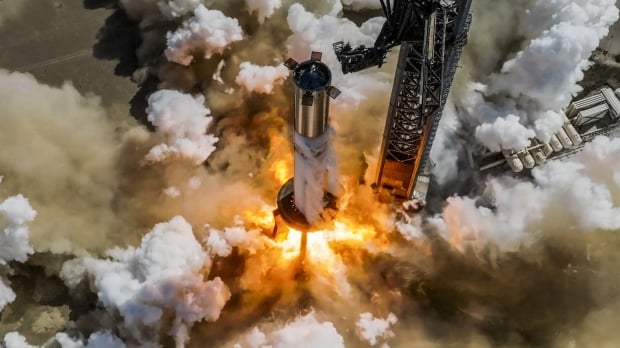CNBC published a report on August 12 that claimed Elon Musk's SpaceX knowingly violated environmental regulations by releasing pollutants into nearby bodies of water in Texas.
The report claims the Elon Musk-led company violated wastewater regulations at its Boca Chica, Texas launch site Starbase. The report cites investigative records along with notices from the Environmental Protection Agency (EPA) and the Texas Commission on Environmental Quality (TQEC). CNBC writes that SpaceX moved quickly to rebuild its destroyed launchpad following the first test flight of Starship, causing some damage to the environment, vehicles, and the in-question launchpad.
To prevent such catastrophic damage SpaceX rebuilt the launchpad with a new deluge system capable of muffling sound, reducing heat, and energy produced by a launch. What the report claims is SpaceX skipped obtaining a permit before going ahead with their next launch. More specifically, the EPA launched an investigation into the wastewater from the new system following SpaceX's full pressure test of in July 2023. Here come the crux of the allegations.
CNBC claims the environmental agency informed SpaceX on March 13, 2024 that it was in violation of the federal Clean Water Act, but SpaceX proceeded with its scheduled third test flight of Starship on March 14. Furthermore, SpaceX is accused of applying for a permit more than 100 days after it received its notice from the EPA. An investigation was launched by TCEQ on July 25, 2024 and they found SpaceX released wastewater without a permit four times since March, according to the CNBC report.
The EPA and the TCEQ haven't responded to the recent report, but SpaceX has taken to its X account o claim the CNBC story is "factually inaccurate" and that its deluge system applies clean, drinkable water to the launch pad. Additionally, SpaceX stated it worked with the TCEQ throughout the construction of the deluge system, and that it states on the TCEQ website SpaceX is covered by the "Texas Multi-Sector General Permit."
SpaceX commented on the EPA notice, saying the notice was issued "without an understanding of basic facts of the deluge system's operation or acknowledgement that we were operating under the Texas Multi-Sector General Permit." Furthermore, SpaceX said it explained the situation to the EPA and the agency "revised their position and allowed us to continue operating."
The Elon Musk-led company then went on to list how the deluge system falls within compliance of the regulations and rules of launching rockets, outlining aspects such as the vast majority of water being vaporized by the rocket's engines, processes being in place that test soil, air and water qualities surrounding the launch site.
"We send samples of the soil, air, and water around the pad to an independent, accredited laboratory after every use of the deluge system, which have consistently shown negligible traces of any contaminants. Importantly, while CNBC's story claims there are"very large exceedances of the mercury"as part of the wastewater discharged at the site, all samples to-date have in fact shown either no detectable levels of mercury whatsoever or found in very few cases levels significantly below the limit the EPA maintains for drinking water," wrote SpaceX



![Photo of the $10 -PlayStation Store Gift Card [Digital Code]](https://m.media-amazon.com/images/I/41MT2s0Gm2L._SL160_.jpg)